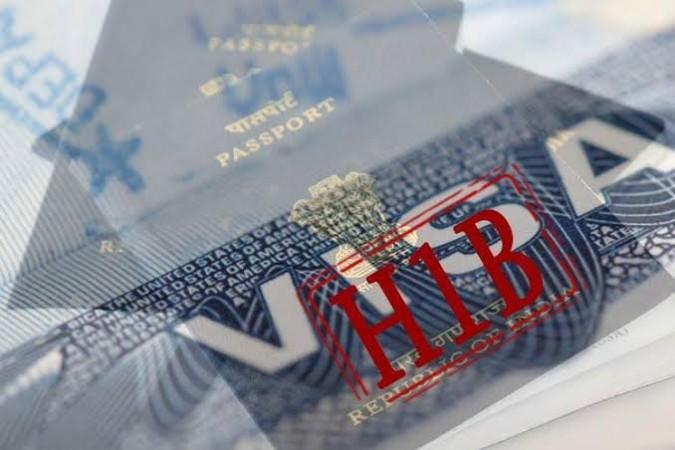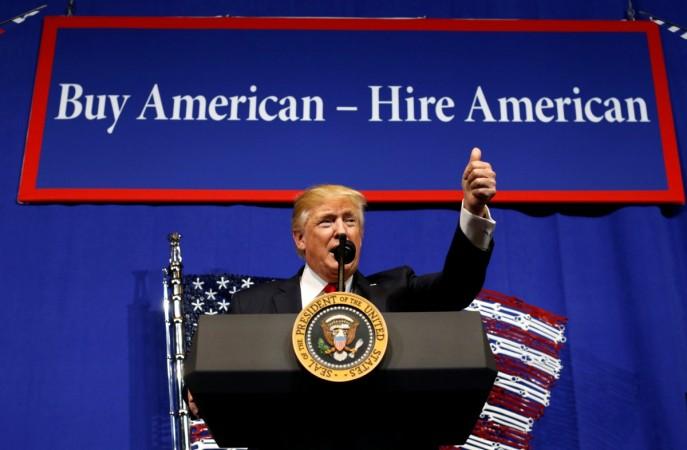The legislation was proposed by both chambers of the US congress to bring reforms in the allocation of H-1B and L-1 visas by US Citizenship and Immigration Services (USCIS) for US-educated foreign professionals and students first.

The H-1B and L-1 Visa Reform Act, as introduced in the House of Representatives and Senate today will give preference to the best and the brilliant foreign students qualified from US educational institutions i.e advanced degree holders and professionals with valuable skills falling under the high-wage category.
Why H-1B legislation is great news for Indians?
After China, India accounts for the second-largest number of foreign students in the US, more than 200,000 in numbers. This move by the US congress to give only the best and brilliant US-educated foreign students an opportunity would benefit a lot of Indian youth already studying in the US.
Also, of the 275,000 unique registration requests received by the USCIS in April this year, the congressional mandate of issuing 85,000 H-1B visas for foreign technology professionals would benefit Indians, as more than 67 per cent of technology professionals are from India.
All about the H-1B and L-1 Visa Reform Act
The visa reform act was introduced in the Senate by Senators Chuck Grassley and Dick Durbin, while in the House of Representatives, it was introduced by men from the US congress - Bill Pascrell, Ro Khanna, Paul Gosar, Lance Gooden and Frank Pallone. The legislation reinstates that the wage requirements are modified and protection for both American workers, H-1B and L-1 visa holders is guaranteed to ensure recruitment of an H-1B visa holder does not affect the hiring of an average American worker.
Grassley said, "We need programmes dedicated to putting American workers first. When skilled foreign workers are needed to meet the demands of our labour market, we must also ensure that visa applicants who honed their skills at American colleges and universities are a priority over the importation of more foreign workers. Our bill takes steps to ensure that the programs work for Americans and skilled foreign workers alike."

The introduction of this act is a major crackdown on outsourcing companies, who bring in a large number of H-1B and L-1 workers to the US for temporary training purposes, and later send them back to their home countries to perform the same job function. The bill will now prohibit companies with more than 50 employees, half of the worker capacity who hold H-1B or L-1 visas, from hiring employees on H-1B. These provisions also address the various types of abuses documented.
The US Department of Labor will be the authoritative body to review, investigate, and audit employer compliance with programme requirements while ensuring fraudulent or abusive conduct by either employers or employees brought to the US under H-1B or L-1 visa programme is penalised.
The system would require the production of extensive statistical data about the H-1B and L-1 visa programs, to include worker education levels, wage date, gender, race and place of employment.
Not placing Americans first: Flaws in the US immigration system since years
Outsourcing companies have cashed in on the loopholes in the US immigration system for years. The introduction of the H-1B and L-1 visa reform act is a critical need of the hour and a step in the right direction to fix the broken immigration system of the country.
The H-1B and L-1 visa program introduced earlier by the US congress was intended to complement the American workforce, and not replace them by hiring cheap labour and skilled qualified professionals from foreign countries.
Unfortunately, a lot of companies have been exploiting and taking advantage of the visa program to replace American workers with cheap labour (skilled foreign nationals). In view of the current situation, wherein a lot of Americans have lost jobs and displaced in Covid-19 crisis times, the US Congress took charge of the situation and felt a need to introduce the H-1B and L-1 visa reform bill.
The visa reforms include setting up of a wage floor for L-1 workers and a change in the definition of "specialised knowledge". The US Department of Homeland Security will be given the authority to investigate, audit, and enforce H-1B and L-1 visa compliance requirements to ensure that reasons for intra-company transfers between branches of a company are legitimate and not involving "shell" facilities.









!['Had denied Housefull franchise as they wanted me to wear a bikini': Tia Bajpai on turning down bold scripts [Exclusive]](https://data1.ibtimes.co.in/en/full/806605/had-denied-housefull-franchise-they-wanted-me-wear-bikini-tia-bajpai-turning-down-bold.png?w=220&h=138)



